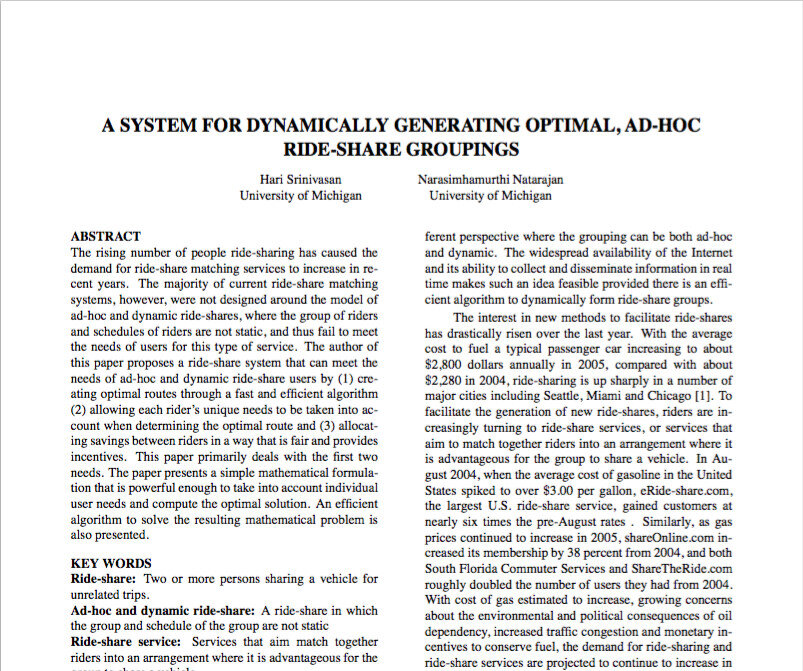That Time We Pitched Uber...10 Years Too Early
This is not a story about almost starting Uber (I didn't even come close). This is a story about how I learned a valuable lesson.
On June 6, 2016, Uber laid out an ambitious vision for carpooling in the Wall Street Journal, highlighting the success of services like Uber Pool, Lyft Line and Didi Shun Feng She.
Ten years prior, On June 6, 2006, I had just finished a new academic paper titled A System for Dynamically Generating Optimal, Ad-Hoc Ride-Share Groupings. In it, I laid out an algorithm to match riders & price rides in real time. I thought it was a pretty good idea, so I implemented the code.
At the time, I asked the smartest people I knew if the technology could be turned into a business. Their answers are below:
“Nobody will use this. People can carpool today and nobody does it." - Senior Executive at Ford Motor Company
“It’s just a terrible business idea. Others have tried it." - Professor at University of Michigan
“Ridesharing is a fad. When gas prices go down, nobody will carpool" - Private Equity Partner and Stanford Graduate of Business Alum
“Nobody cares about a few dollars. I’m not going to wait for somebody running late from work to pick me up." - Sr. Software Engineer
"It just seems you are too late - there are already so many competitors." - Sr Manager at Ford Motor Company (at the time eRidshare.com and 234Car were the biggest players in the ridesharing space)
I listened to the advice.
To be blindingly clear, I don't look back and think I was 'this close' to creating Uber. I've been through enough startups to know an idea makes up a small fraction of a company. Not to mention, my timing was terrible (there was no smart phone, pocket GPS or readily available map APIs at the time), I had never heard of venture capital, and I was pitching with the interface shown in this article.
But I do often think of this experience as the time I learned a valuable lesson: never trust an expert’s opinion over your own intuition. Senior managers of large corporations are seldom creative visionaries, and industry leaders often miss disruptions to their own companies (see GM investment in Lyft, in this case). While they may require smarts, senior titles do not give you access to crystal balls.
It’s worth thinking about this next time an expert questions your idea.
Images: Screenshots of the 2006 paper and software



